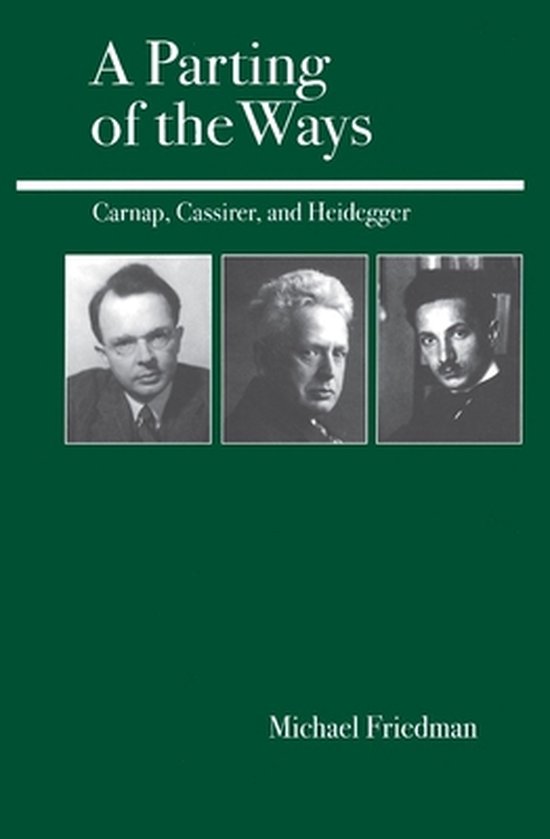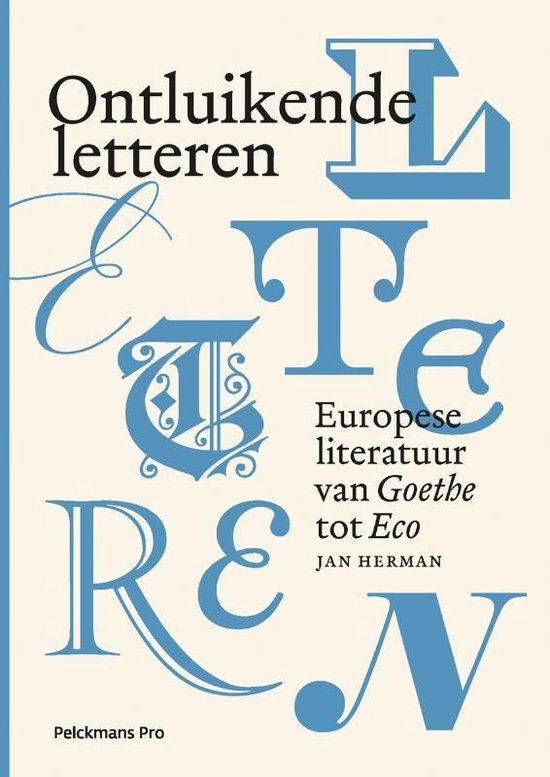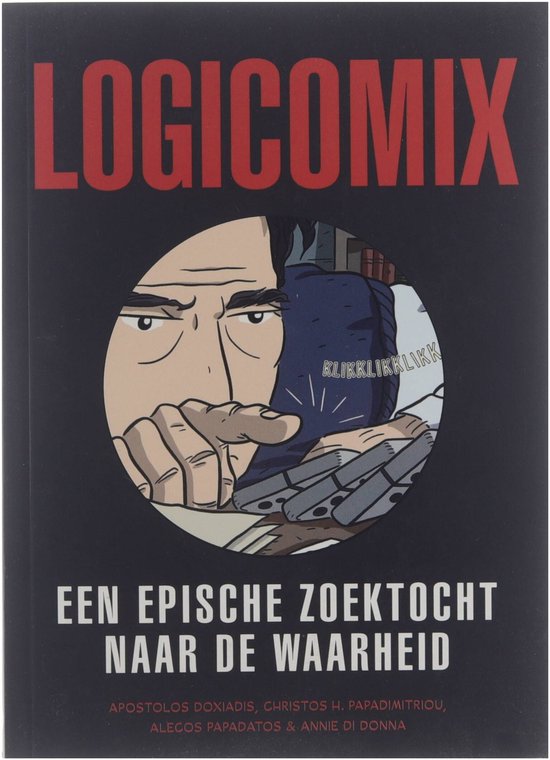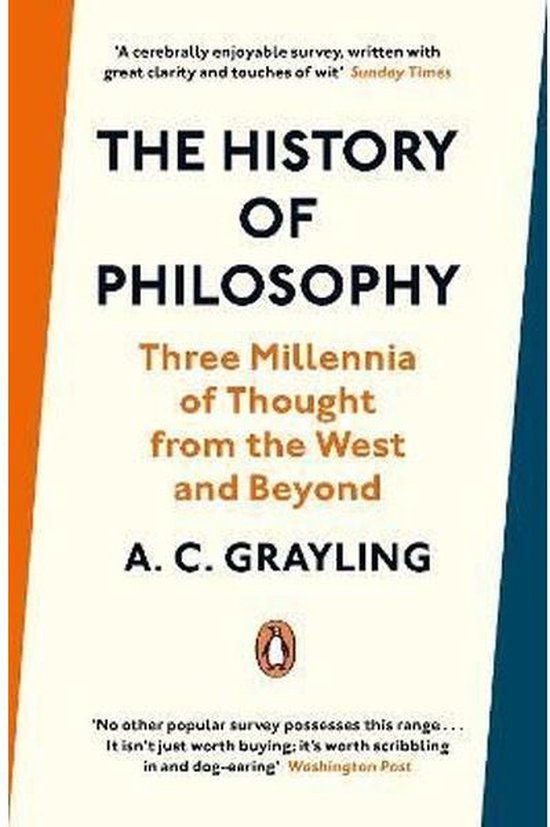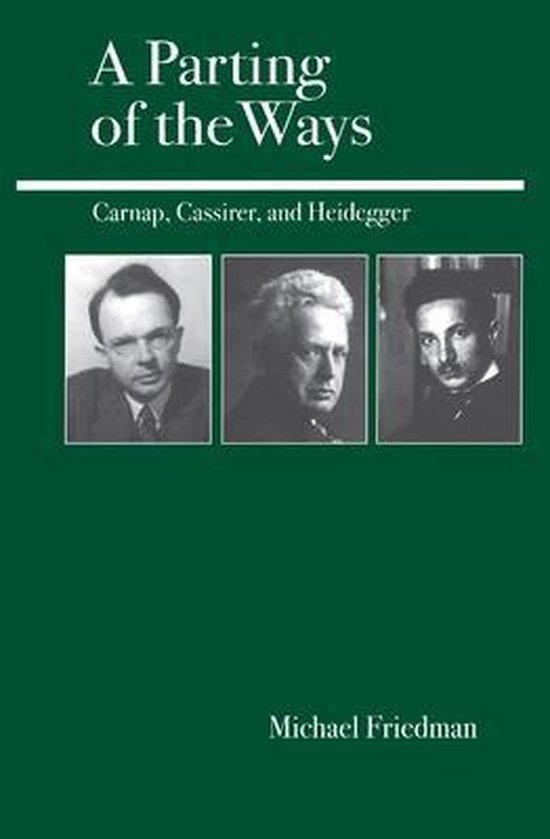
A Parting of the Ways
Since the 1930s, philosophy has been divided into two camps: the analytic tradition which prevails in the Anglophone world and the continental tradition which holds sway over the European continent.
A Parting of the Ways looks at the origins of this split through the lens of one defining episode: the disputation in Davos, Switzerland, in 1929, between the two most eminent German philosophers, Ernst Cassirer and Martin Heidegger. This watershed debate was attended by Rudlf Carnap, a representative of the Vienna Circle of logical positivists.
Michael Friedman shows how philosophical differences interacted with political events. Both Carnap and Heidegger viewd their philosophical efforts as tied to their radical social outlooks, with Carnap on the left and Heidegger on the right, while Cassirer was in the conciliatory classical tradition of liveral republicanism. The rise of Hitler led to the emigration from Europe of most leading philosophers, including Carnap and Cassirer, leaving Heidegger alone on the continent.
A Parting of the Ways looks at the origins of this split through the lens of one defining episode: the disputation in Davos, Switzerland, in 1929, between the two most eminent German philosophers, Ernst Cassirer and Martin Heidegger. This watershed debate was attended by Rudlf Carnap, a representative of the Vienna Circle of logical positivists.
Michael Friedman shows how philosophical differences interacted with political events. Both Carnap and Heidegger viewd their philosophical efforts as tied to their radical social outlooks, with Carnap on the left and Heidegger on the right, while Cassirer was in the conciliatory classical tradition of liveral republicanism. The rise of Hitler led to the emigration from Europe of most leading philosophers, including Carnap and Cassirer, leaving Heidegger alone on the continent.
| Auteur | | Michael Friedman |
| Taal | | Engels |
| Type | | E-book |
| Categorie | | Religie, Spiritualiteit & Filosofie |
